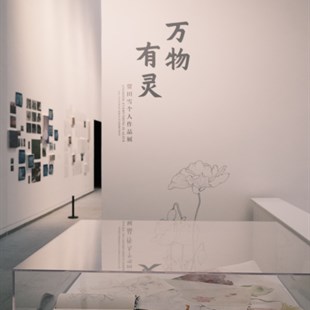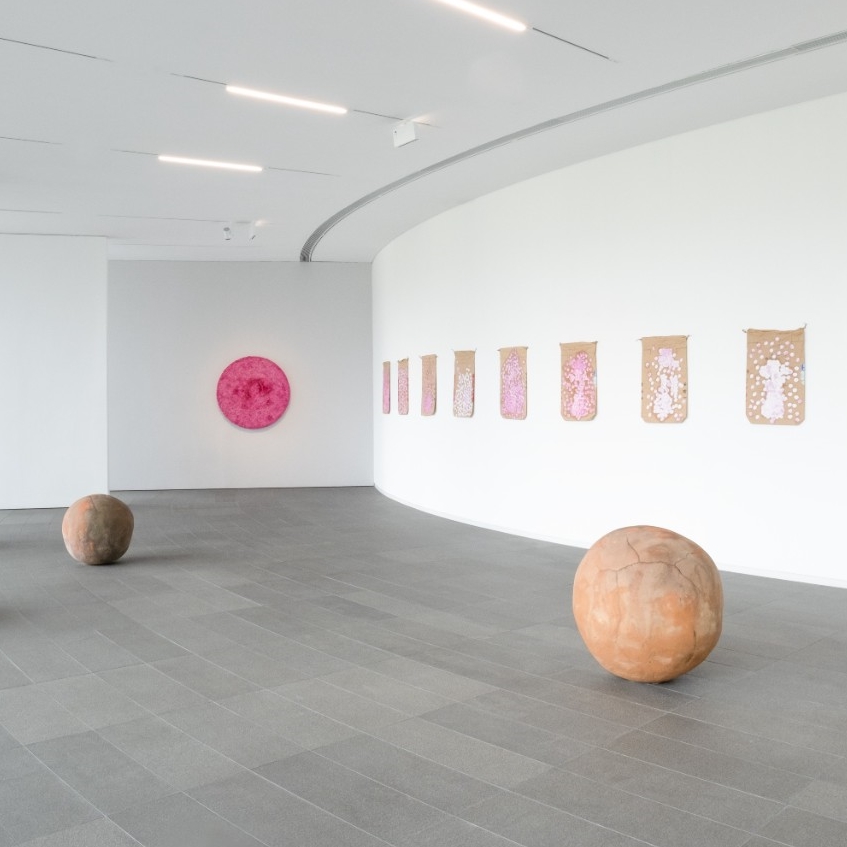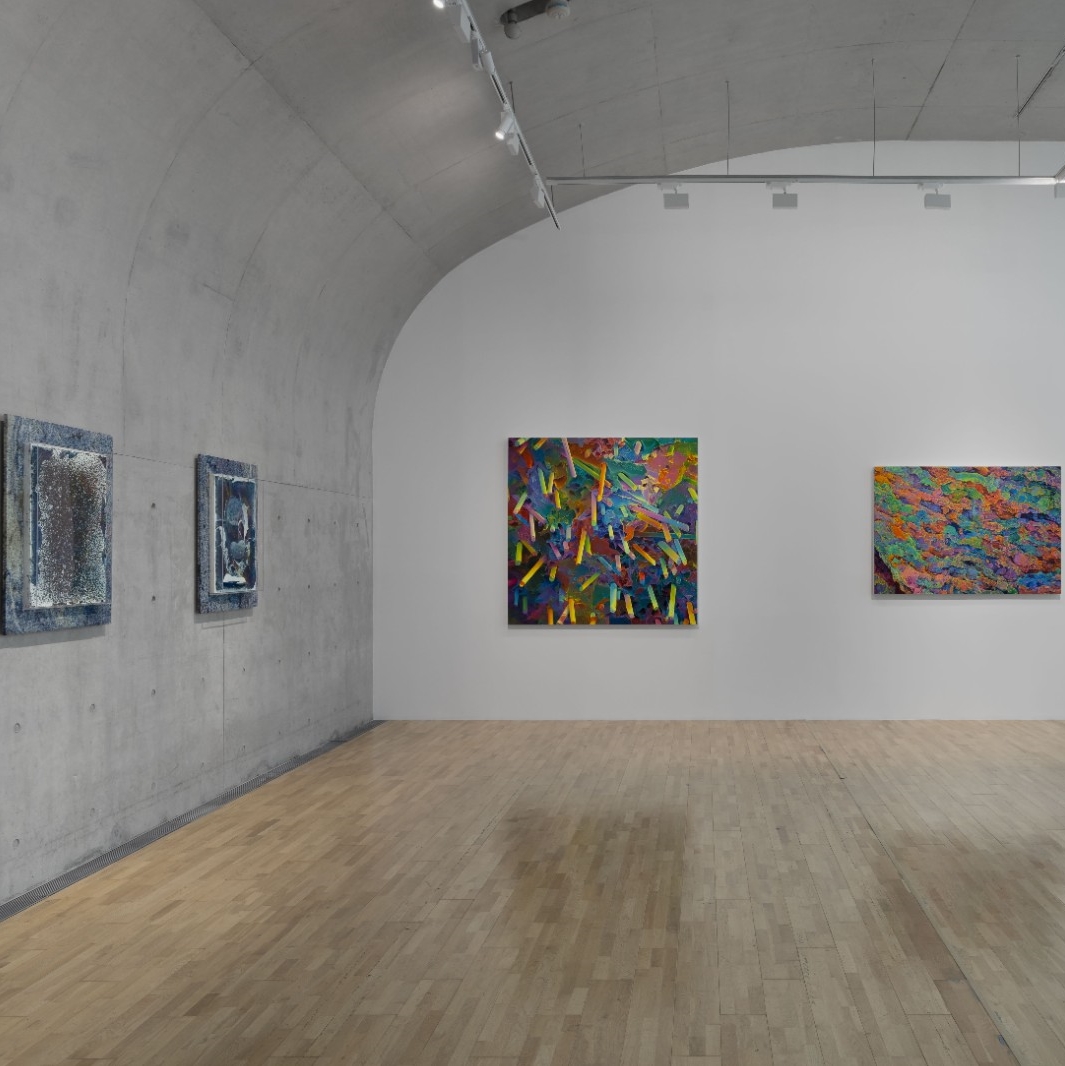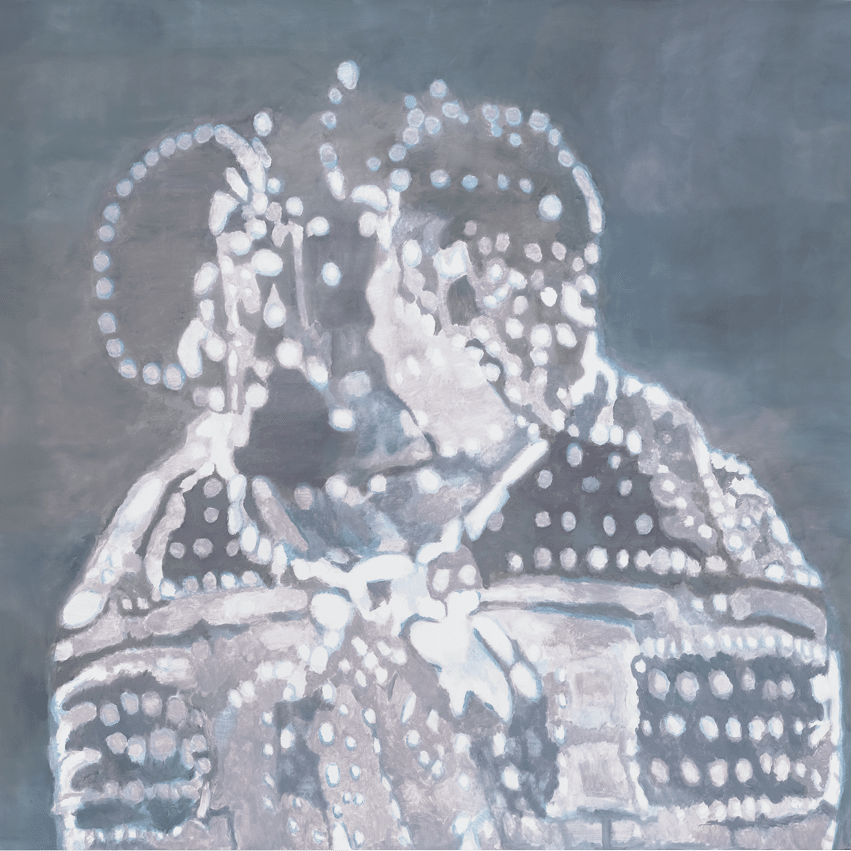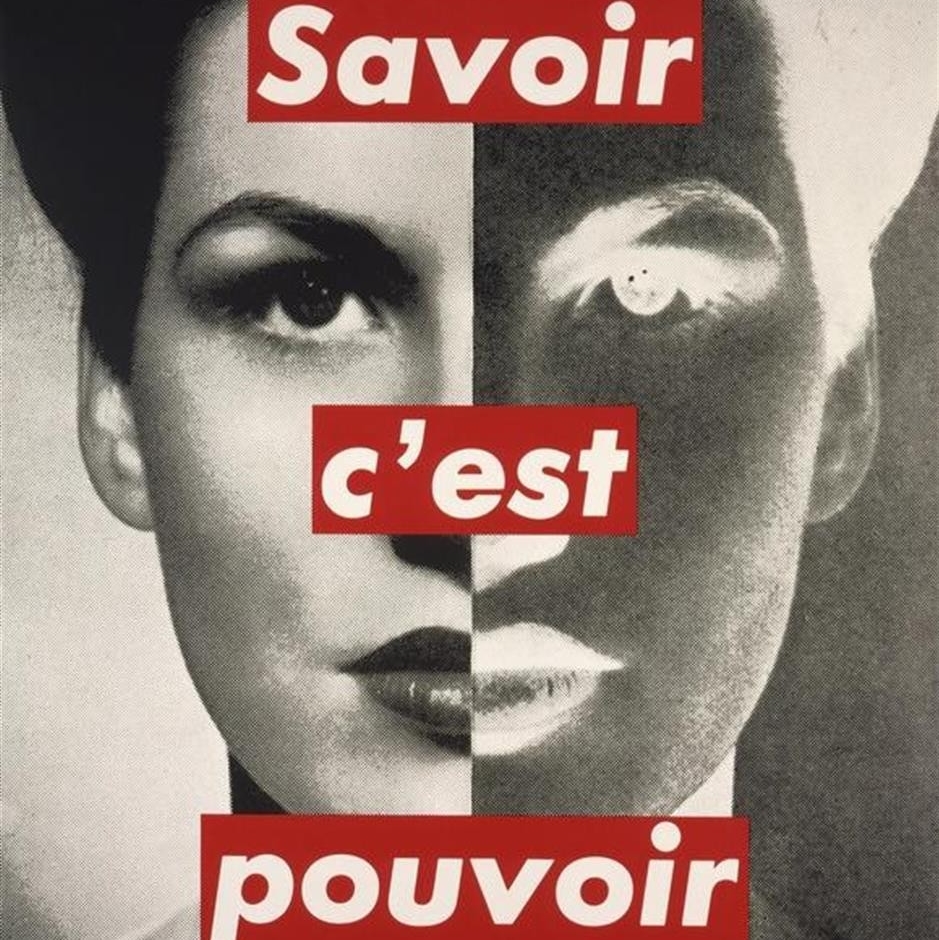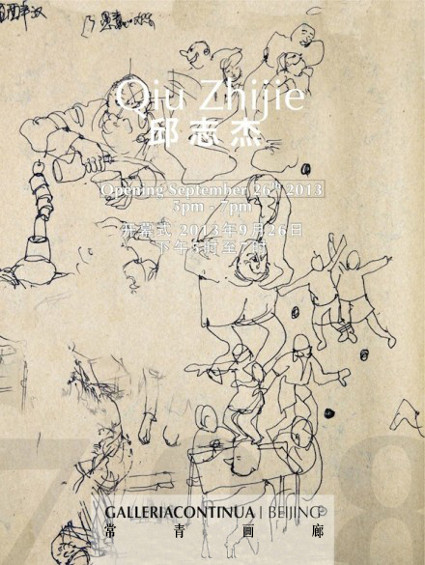
While contemporary art was hardly known in China in the 1990s, Qiu Zhijie already started making conceptual artworks in the southern regions of China. After the Reform and Opening in 1979, he was one of the youngest students who were influenced by the newly brought Western thoughts in the fields of Art, Philosophy, Political Science and Sociology. He was then influenced by thinkers such as Nietzsche and Wittgenstein, and quickly integrated his inspiration together with the new methods of art making into his practice. As an artist, he has witnessed the rapid social and economical changes of China in the last two decades. Since being deeply rooted in China's cultural context and this land that he belongs to, he questions the controversial social and political phenomena that he sees, and his works aim to be a comment on these phenomena. The changes that were brought by development globalization in contemporary China intrigue him, especially the clashes of ideologies and different realities. Meanwhile, he also reflects on China's recent history in his works - how individuals' lives are affected by a state's destiny. In this exhibition, he delivers his contemplation generously.
This exhibition by Qiu Zhijie makes a reference to the book 'The Name of the Rose'. In the book, the Italian philosopher Umberto Eco tells a meaningful story: a series of bizarre murders happened in a monastery. As the detective investigated deeply into the case, the reason was eventually uncovered: the cause of the murders was a book that resided in the library of the monastery. The book was the legendary second volume of Aristotle's 'On Poetics'. In the first volume, Aristotle talks about tragedy; it is said that in the second volume, he talks about the meaning of comedy and the techniques of it-how to create laughter and to bring pleasure to lives and the society. A book like that was deemed to be intolerable for a medieval world that was under Christian rules. Because the 'evil, bore, shameless, stupid and dissolute laughter' would certainly subvert the order and the authority that has been built by the church. So the librarian guarded this 'forbidden' knowledge warily, therefore whoever read the book was killed by him. At the end of the story, this forbidden book, the murderer and the whole library were all burnt to ashes.
In the exhibition, the artist Qiu Zhijie claims to 'own' a version of this forbidden book and to showcase some chapters of it. By 'presenting' this book to the audience, laughter and its techniques are opened for acquisition, therefore this 'forbidden knowledge' can be gained freely; with this act, a certain kind of freedom can be gained. It's a gesture of challenge and resistance made by the artist. The 'laughter' in this exhibition is more than a simple cheerful one, it has a penetrating power and contains deeper implications - it aims to awaken.
About the artist
Qiu Zhijie was born in 1969 in Zhangzhou, China, he now lives and works in China. He has shown his works extensively worldwide, with solo shows including the Fondazione Querini Stampalia, Venice, 2013; Pace Beijing, Beijing, 2011; the Chambers Fine Art, New York, 2009; the Venice Biennale (2009) and the Ullens Center for Contemporary Art (UCCA), Beijing, 2009. His most recent group shows including Saatchi Gallery, London, 2012; the Museo Diocesano d'arte sacra, Venice, 2013; the Minsheng Art Museum, Shanghai, 2012; the National Museum of Art, Osaka, 2011; The House of World Cultures, Berlin, 2009; Tate Liverpool, 2007; the National Gallery Moscow, Russia, 2007; Long March Space, Beijing, 2007; The Open Museum of Photography , Tel Hai, Israel, 2005; the National Gallery of Malaysia , Malaysia, 2004; the Musee d'Art Contemporaine de Lyon , France, 2004; the International Center of Photography , New York (2004) and Queens Museum of Art, New York, USA, 2001. In 2012 he acted as the chief curator of the Shanghai Biennale.
About the exhibition
Duration: Sep 26, 2013 - Feb 23, 2014
Venue: Galleria Continua
Opening: Sep 26, 2013 Thur 17:00
Tel: 010-59789505
Add: Dashanzi 798 Art Factory, 2 Jiuxianqiao Road, Chaoyang District, Beijing
Courtesy of Qiu Zhijie and Galleria Continua, for further information please visit www.galleriacontinua.com.


